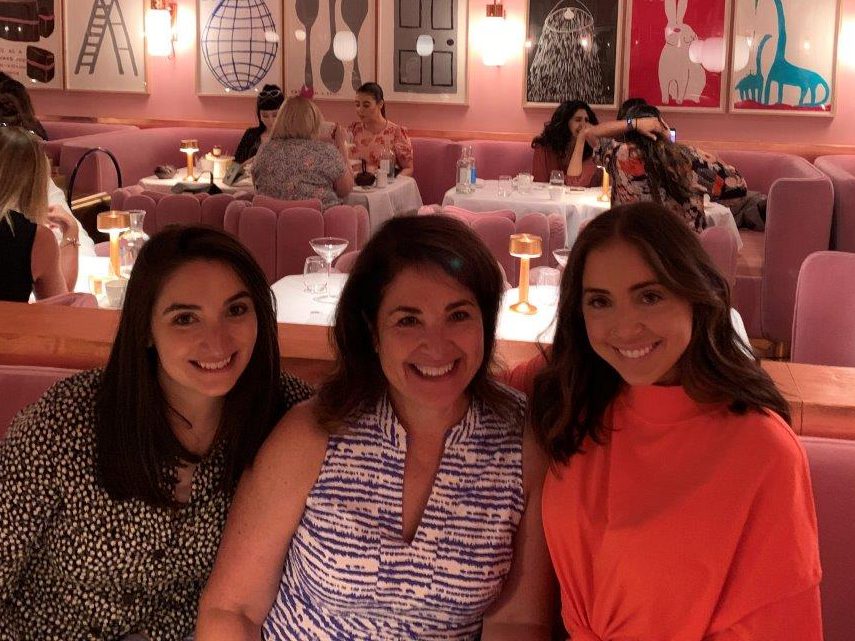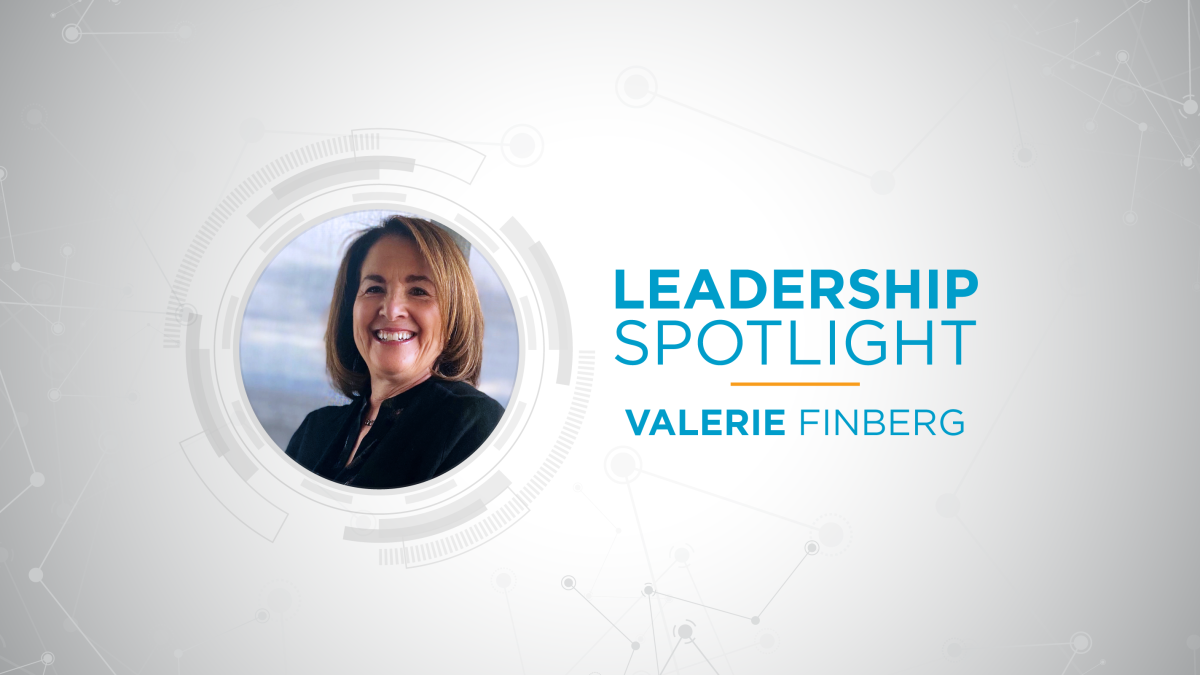Vantage’s Valerie Finberg Explains Why Communication is King During an Acquisition
Companies with aggressive growth strategies – ones choosing to grow quickly through mergers and acquisitions (M&A) – have myriad requirements. They need consistent, stable leadership with a solid vision for the company and its future. They require experienced, knowledgeable counsel to conduct due diligence and guide their M&A activity. They also need to communicate frequently with the disparate groups of stakeholders who will be impacted – either directly or indirectly – as a result of a company’s growth activity.
That last requirement – communications – can oftentimes be taken for granted in rapidly growing companies. Senior leadership is focused on ironing out transaction details and integrating two organizations – often with very different cultures – that communication can be an afterthought.
However, as Valerie Finberg, vice president of investor relations and chief of staff to Vantage’s President and CEO Sureel Choksi explains, an acquisition without frequent, clear and consistent communication from both organizations can fuel concerns and difficult questions for everyone involved.
For our next Leadership Spotlight interview, we sat down with Valerie to talk about how her previous positions in consulting and telecom prepared her for her role at the rapidly expanding Vantage Data Centers, and why communications are so essential for any company executing on an aggressive growth strategy.
Interview with Valerie Finberg
Data Centers Today (DCT): What is your role as Chief of Staff and VP of Investor Relations?
Valerie Finberg: As the Chief of Staff to Vantage’s President and CEO Sureel Choksi, I help coordinate and oversee many projects, which enables Sureel to keep his focus on strategic initiatives. Vantage has expanded significantly into new regions and markets over the past few years, and my role is to give Sureel the ability to focus on the company’s growth strategy, knowing that other initiatives are still progressing.

As the VP of Investor Relations, I work to update the board of directors and all our investors on the company’s growth and strategic initiatives on a quarterly basis. I answer their questions, help them understand new developments in the company – and the broader data center industry – and help answer any questions they may have.
DCT: You’ve spent time working at some very large companies, including CenturyLink and Level 3 Communications. How did your time as VP of Investor Relations in those very large companies compare to working for a smaller company like Vantage?
Valerie Finberg: There are some similarities. Almost every company has investors or stakeholders that need to have their questions answered and understand what’s going on in the company, regardless of company size.
But it’s also very different in that my previous employers, Level 3 and CenturyLink, had hundreds of thousands of investors who all had various questions across a broad range of topics. Some of those investors owned two shares. Others owned a million shares. And the questions that they would have – and what they cared about – would be very different.
With Vantage, we have a much smaller group of investors that we need to keep informed. Having dealt with a much larger group of investors and stakeholders in the past has prepared me to handle any question or concern that investors might have. Vantage’s investors have always been very supportive, partly because of the company’s continued growth and success, but I’ve been well prepared by my previous experience to handle anything that may come up.
DCT: Part of your impressive experience at Level 3 was navigating the company’s acquisition by CenturyLink. What role did you play in that process? What challenges did that create for you?
Valerie Finberg: Prior to the CenturyLink acquisition, Level 3 had acquired approximately 20-30 companies while I was there. My role in that process was to work with the company that we were acquiring – their investor relations teams and media teams – to come up with the best messaging to convey why the acquisition was good for the companies, their investors, their employees and other stakeholders.
We had to identify the best way to message those acquisitions that illustrated the positives of the transactions. It’s always challenging to strike the right balance of excitement and confidence, while also laying out the risks and challenges and how the executive team is going to address them. And that is something that we have experienced here at Vantage as well.
The last acquisition that I participated in with Level 3 was when we were acquired by CenturyLink. Prior to that transaction, I had always been on the side of the purchaser, not the company that was being acquired. Going through that process gave me so much more perspective and empathy for what it’s like to be acquired and what that means. It has made me much more aware of the concerns that stakeholders have when their company is acquired.
DCT: Vantage is a company that has grown aggressively in the past few years through strategic acquisitions. How did your experience at CenturyLink and Level 3 prepare you to navigate these acquisitions at Vantage?
Valerie Finberg: Through all the acquisitions at Level 3, I learned the importance of communications for all stakeholders – employees, vendors, customers and investors – during a transaction. I learned how important it is to keep them informed.
Acquisitions are large, difficult to navigate transactions that have a lot of moving parts. Sometimes, as executives are working to integrate two companies – with two different cultures and two sets of systems – they take communications for granted. But communication is an essential part of the process that should be done early and often. – Valerie Finburg
DCT: You studied economics at the Wharton School of Business, one of the most famous and prestigious business schools in the country. What was your original plan for your degree in economics? What led you to working in the tech and communications industries?
Valerie Finberg: With my economics degree, I had planned to go into banking. But things don’t always go exactly like we plan. After graduation, I received an offer from Ernst and Young’s consulting business, supporting their work with the Federal Reserve Bank.
The idea of consulting and working on different projects was very attractive to me. The combination of working for the Federal Reserve Bank and doing consulting was a very appealing combination.
After that engagement, I was assigned to work for MCI Telecommunications, which was a pioneer in the competitive long-distance marketplace, similar to how Vantage is a pioneer in offering data center services to hyperscalers.
As often happens in the consulting world, I received a job offer from MCI, went to work for them and have been in the telecommunications industry, in one form or another, ever since.
DCT: You have extensive experience working for communications and telecom giants. What made you want to work in the data center industry?
Valerie Finberg: I was excited to join another company and industry that was at a point of very high growth. And all these companies are part of that broader telecom industry. Whether it’s competitive long distance, fiber optics or operating hyperscale data centers, they each help connect the world, which I love.
DCT: What would you consider your greatest professional accomplishment?
Valerie Finberg: My greatest professional accomplishment actually relates to M&A activity. While I was working with Level 3, the company was planning to acquire tw telecom, a Denver-based telecommunications company.
The investor relations and public relations teams were planning to announce the acquisition in one week’s time, but the news was leaked. To get control of the narrative and get an opportunity to show everyone involved why it was a good decision for all parties involved, we made the decision to quickly pull together everything necessary to announce the transaction in the following few days.
The teams worked tirelessly to pull together the materials necessary to announce the transaction. We were able to get the requisite information onto the company websites, finalize presentation materials, organize an investor call and otherwise do a week’s worth of work in a few days.
We got it done, got it done effectively, and the news was very well received by all parties. I’m extremely proud of the work that we did around that acquisition.
DCT: Who has been your role model, and what did you learn from that person?
Valerie Finberg: Vey early on in my career at Ernst and Young, there was a person named Rhoda Canter who was the first female partner in the Washington, D.C. office. She very much was a role model for me early in my career.
When I joined the workforce, while it was common for women to be in the workforce, it was rare to see women in a partner role. Making your way into a leadership position in the consulting and technology industry was challenging for women at that time.
Seeing her poise, how she held other people accountable and held her ground was very inspiring to me.
DCT: What’s the best piece of advice you ever received?
Valerie Finberg: Early in my career, my boss gave me the advice to not take things personally, and that it’s very likely not about you. That’s advice that I still think about and share with others when I’m in a mentoring position to this day.
Just show up, every day, planning to do the best that you can do. If you do that, you’ll be successful.



